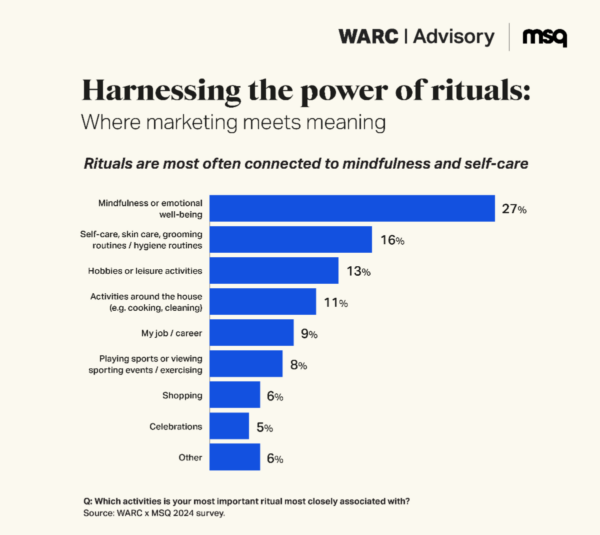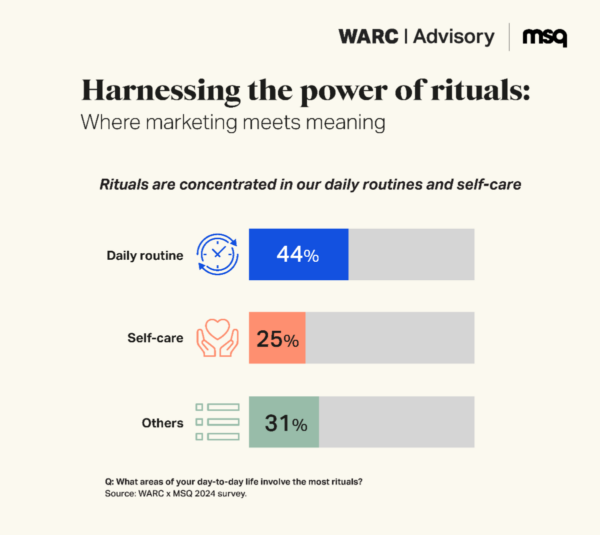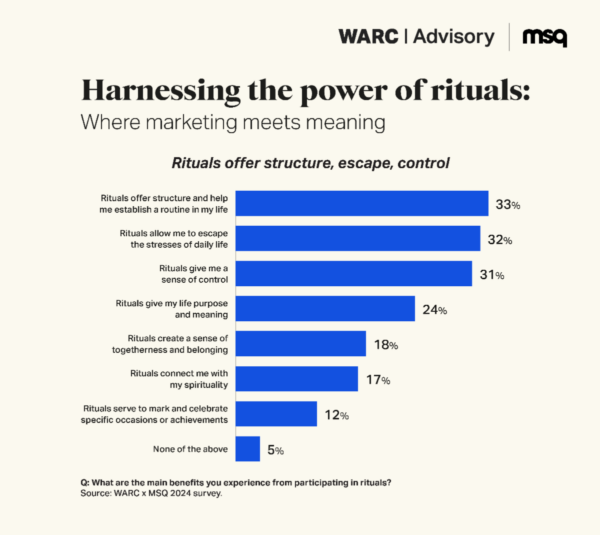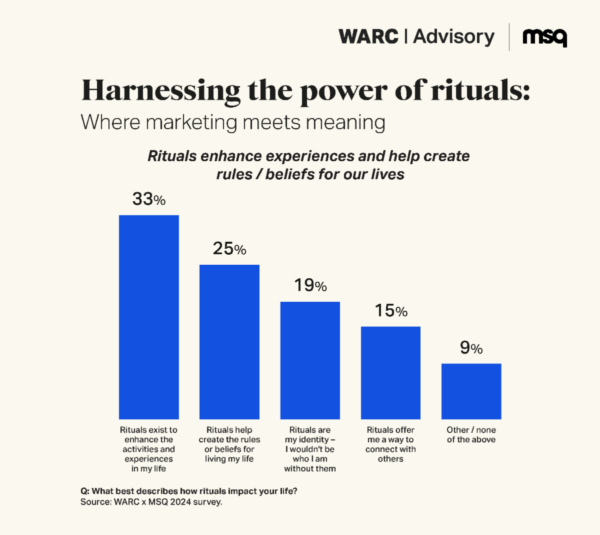Rituals unlock access to consumers’ deep emotional behaviors to support meaningful brand-building
September 19, 2024

This breakthrough research examines the role of rituals in consumers’ lives, how people participate in them and why, and explores the potential opportunities that brands can unlock: 72% of consumers surveyed incorporate brands into their rituals at least some of the time, 70% are very, or somewhat, open to adopting new rituals, and 39% feel more positively toward brands that become a part of rituals, the report finds.
As brands battle to connect more meaningfully with consumers, the report outlines how rituals – defined as a succession of behaviors designed to induce an emotional transformation – can enrich understanding of consumer behaviors, unlocking access to more meaningful brand building. This allows brands to unleash deeper connections and generate longer relationships. The whitepaper outlines marketing opportunities through engaging in rituals.
The analysis combines a WARC Advisory survey of 4000 consumers across Germany, France, UK and the US, and in-depth expert interviews with marketers, culture experts, behavioral scientists and neuroscientists including: Dr. Marcus Collins, Professor at the Ross School of Business, University of Michigan, Author of For the Culture; and Sian Davies Global Founder, The Behavioral Architects.
Principle 1. Rituals are driven by personal meaning even when providing practical benefit
One in four people surveyed say that, “creating the rules or beliefs for living my life” best describes the impact of their rituals, and nearly the same number agree that “rituals give my life purpose and meaning.” Rituals are most often connected to mindfulness and self-care, the report finds.

Principle 2. Rituals offer support for the individual in an atomized society
Rituals are often thought of as something that individuals do to connect to others and create a sense of community, whether through religion, culture, sports, or other shared experiences. While those rituals are just as important today, the data showed how often rituals are used to support the individual. 56% of rituals centre around personal care, or deepening connections with others. Beyond being concentrated in our daily routines, these rituals are focused on nurturing self and relationships. The research finds that rituals are most often carried out inside the home, and twice as often individually, than with friends or family. Also 50% of consumers surveyed involve others in their rituals at least some of the time.

3. Rituals provide structure and control in a volatile environment
One of the core functions of rituals is to provide a stabiliszing mechanism to counteract the forces which may create an individual’s sense of losing control. Of those surveyed, structure (33%), escape (32%) and control (31%) were the top three benefits of rituals.

4. Rituals create meaning in a world obsessed with efficiency
In a technology-driven culture that is hyper-focused on efficiency, people’s lives are more efficient than ever, resulting in a struggle to achieve a balance with mental and physical health, and overall happiness. In marketing, efficiency is by no means a bad thing. However, meaning and emotion in marketing messages and customer experience can often be lost in the quest for endless automation and efficiency. Rituals can enhance experiences and help to create rules and beliefs in people’s lives, the analysis finds.

While marketing campaigns built entirely around rituals are rare, the report provides case studies of brands that have optimized ritual behavior to solve a business challenge, from KFC to The Guardian. The study also offers actionable insights for brands wanting to tap into the power of rituals.




























